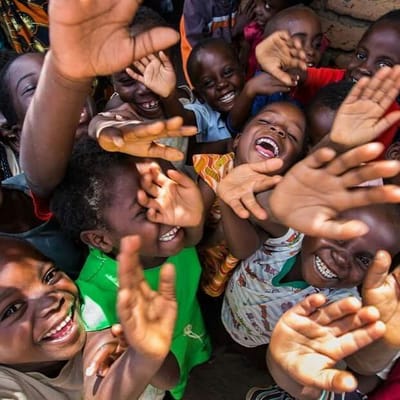Supporting Humanity's Future
Jointly building a brighter tomorrow!
- Empowerment through Education: Provide access to quality education for underprivileged children and adults, fostering lifelong learning and unlocking opportunities for personal and community growth.
- Healthcare Access for All: Promote and support health initiatives that ensure access to essential medical care, wellness programs, and preventative health services for vulnerable populations.
- Sustainable Community Development: Implement sustainable development projects that focus on improving living conditions, creating economic opportunities, and building resilient communities.
- Humanitarian Aid and Crisis Relief: Provide immediate and long-term assistance to individuals and communities affected by natural disasters, conflict, or socio-economic challenges, ensuring that basic needs are met and recovery efforts are supported.
Our Team
Lolo Queen Nwachukwu (Jp)
Chairman Margaret & Cecilia Humanitarian Foundation
Married to Chief Cletus E, Nwachukwu. AN Evangelist, counselor, Caterer and a tourist. Achievement: member Jdpcc ( Voice to the Voiceless) Woman leader, and philanthropist.
Chief Cletus Ezenwoke Nwachukwu
Member Margaret& Cecilia Humanitarian Foundation
Ugwumba 1 of Apu-Ukwu autonomous community, Isialangwa South LGA of Abia State, Age: 58years. Qualification: Advance Diploma (Marketing), Management Sciences, Married to Lolo Queen Nwachukwu, A distinguished member of defunct Nigeria Airways Ltd, and Sky power aviation handling company Ltd, (retired),(1986-2010), worked as top manager for one of the leading supermarket in Portharcourt (2011-2018), a successful farmer, Father and grandfather, and a philanthropist.
Adugba Noble Happiness Nkechi
Member Margaret& Cecilia Humanitarian Foundation
Age: 53 years Marital status: Married to Mr Noble I. Adugba (Economist) Nursing carer/Civil Service September 1998 till date Qualifications Registered Nurse Registered Midwife Health Education (Bsc) Public Health (Bsc) Public Health (MSc) Achievements: Current Chairman NANNM/FOLGONM Obingwa Chapter. Director of Nursing in Service Program officer on HIV/AIDS H.O.D family planning Obingwa Abia state Director Hapnob Clinic and Maternity.
ENYINNAYA EPHRAIM.C
Office manager
NATIVE OF UMUAKPOR VILLAGE IN OVUNGWU COMMUNITY.ISIALANGWA SOUTH L.G.A.ABIA STATE OF NIGERIA. AGE=54YRS. MARITAL STATUS: MARRIED TO IHUOMA CAROLINE EPHRAIM. OCCUPATION=TRADING. LINE OF BUSINESS =DEALER OF ALL KINDS OF FABRICS ACHIVEMENTS/INVESTMENT :E&E FASHION GALLERY /DESIGNERS OF ALL KIND OF MEN,S OUTFIT POSITION :CEO.
Susan Akinnawo
Member Margaret& Cecilia Humanitarian Foundation
Age: 28 years Marital status: Married to Mr Joseph Akinnawo Occupation: Event planner and Decorator Qualifications Geography and Environmental Management (Bsc) Achievements: Member of Event vendors Port Harcourt
Ayaode Tamaralayefa
Member Margaret& Cecilia Humanitarian Foundation
Age: 27 years Marital status: Married to Mr Darlington Ugochukwu Occupation: Business, Import and Export Qualifications Accounting (Bsc)
Services
Donate
